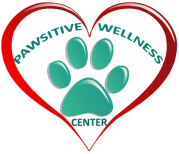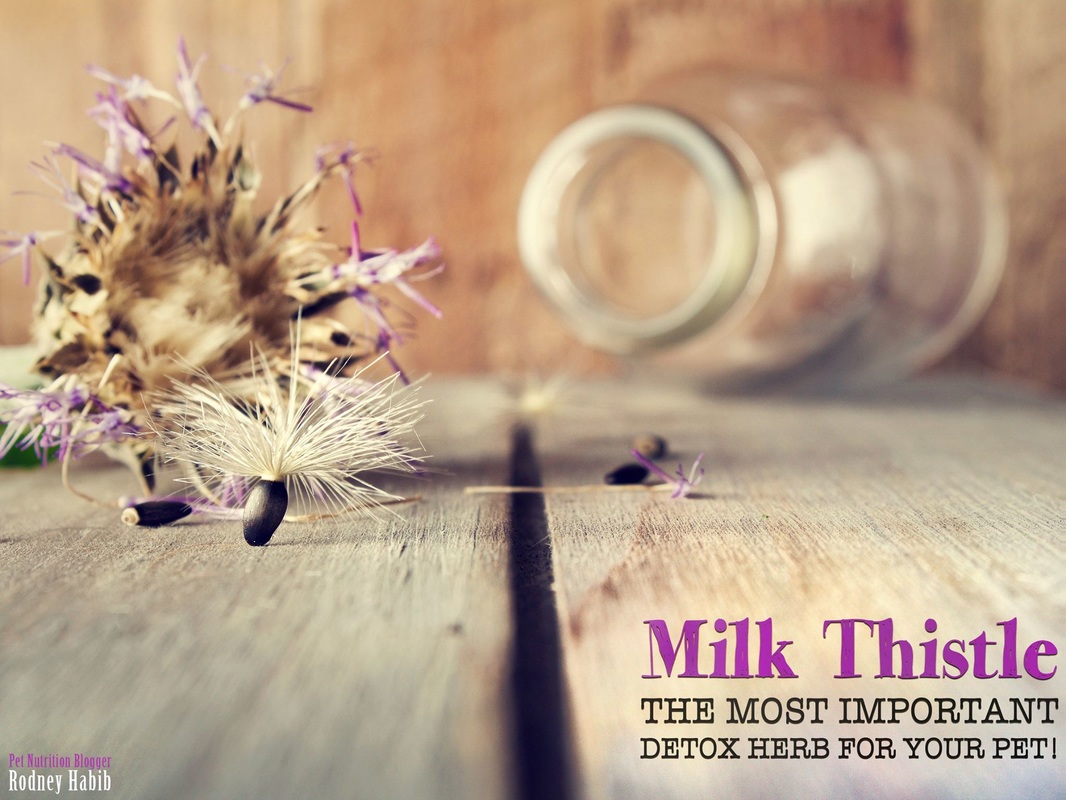|
Great talk on cancer in Dogs with Dr. Karen Becker and Rodney Habib.
A must listen if you love your dogs and want the best for them!
0 Comments
I have used Milk Thistle with my pets for years to detox the kidneys and liver. There are so many toxins in our environment that both people n pets need to detox from our systems. I also use many mushrooms and essential oils to assist in detoxing. ONE OF THE MOST IMPORTANT HERBS TO EVER ADD TO YOUR PET’S DIET! DOSAGES: Use ¼ of a teaspoon per 20lbs of body weight. The Natural Way to Enhance your Pet’s Life: “Despite much of the publicity that has been generated about this ‘wonder herb’, milk thistle should not be used as a daily food supplement. Milk thistle is a medicine that is best reserved for situations in which the liver is already under abnormal stress.” Most holistic doctors feel that milk thistle should be administered for 3-6 weeks with a 1-3 week break. Detoxification is such an important process, not only for us humans, but also for our pets. We can be feeding our furry loved ones the best foods in the world but pores clogged with toxins will not allow essential nutrients to pass, causing a weakened immune system. A pet’s weakened immune system equals a multitude of problems! Milk thistle is the boss of detoxifiers! But what else can this rock star of an herb do exactly? This recipe is a great way to get mushrooms into your pets diet.
Health Benefits of Mushrooms for Pets: These mushrooms are not toxic for you or your pets. They help support: Liver and Kidney Functions Improve skin and coat Help prevent viral infections Contain antioxidants Improve Overall Health Aid in the fight against cancer Mushrooms to use: 1 cup of a mixture of these mushrooms Reishi, Chaga, Cordyceps, Maitake, Shiitake, Oyster, or Portobello. Sauté in organic unrefined coconut oil. 1 c. chopped mushrooms 2 c. water Add turmeric has hundreds of potential benefits and ginger for inflammation and other great benefits. I use essential oil for ginger Simmer 20 minutes Cool Blend in food processor or juicer Start with 1 Tbsp. per 25 pounds of pet weight You can freeze in ice cube trays for later 1 ice cube = 2 Tbsp. |
Blog CreatorMary DeRoche Archives
April 2024
Categories
All
|
DISCLAIMER: I, Mary DeRoche, am not a veterinarian and do not practice medicine. I do not diagnose, cure, heal, treat disease or otherwise prescribe medication. I assist people in working with their animals in correcting energetic imbalances in their pet’s bio-field that assists the body to release its innate healing ability. When the energy chi of the body is balanced and moving correctly, the body’s innate natural energy heals itself. All healing is self-healing. Animals are affected by their environment so I also include the pet parents in my work. Animals do pick up energy from their family and environment. I only recommend the use of therapeutic grade essential oils for your pets because therapeutic grade essential oils have been tested to guarantee that they are free of synthetics, additives, toxins and any other impurities, which can result in side effects and/or inconsistent results. Essential oils and supplements are recommendations to help boost the pet’s immune system.
I recommend that clients continue to see their pet’s regular veterinarian and follow their advice and my work is a complement to regular allopathic medicine. My spiritual energy work is not a substitute for conventional medical diagnosis or treatment for any medical or psychological condition. For such issues, you should seek the proper licensed veterinarian. I am a Healing Touch for Animals Practitioner and a Subtle Energy Practitioner and my work is spiritually and energetically based and I believe all healing is spiritual in nature. I do not make any promises, warranties or guarantees about results of my work, or of the energy sessions. The energy sessions help many animals but like any energy work, it might not work for everyone. The use of essential oils, herbs and supplements is to assist the pet with balancing chakra centers for proper energy flow or chi.
© 2013~2023 Pawsitive Wellness Center All Rights Reserved.
I recommend that clients continue to see their pet’s regular veterinarian and follow their advice and my work is a complement to regular allopathic medicine. My spiritual energy work is not a substitute for conventional medical diagnosis or treatment for any medical or psychological condition. For such issues, you should seek the proper licensed veterinarian. I am a Healing Touch for Animals Practitioner and a Subtle Energy Practitioner and my work is spiritually and energetically based and I believe all healing is spiritual in nature. I do not make any promises, warranties or guarantees about results of my work, or of the energy sessions. The energy sessions help many animals but like any energy work, it might not work for everyone. The use of essential oils, herbs and supplements is to assist the pet with balancing chakra centers for proper energy flow or chi.
© 2013~2023 Pawsitive Wellness Center All Rights Reserved.


 RSS Feed
RSS Feed